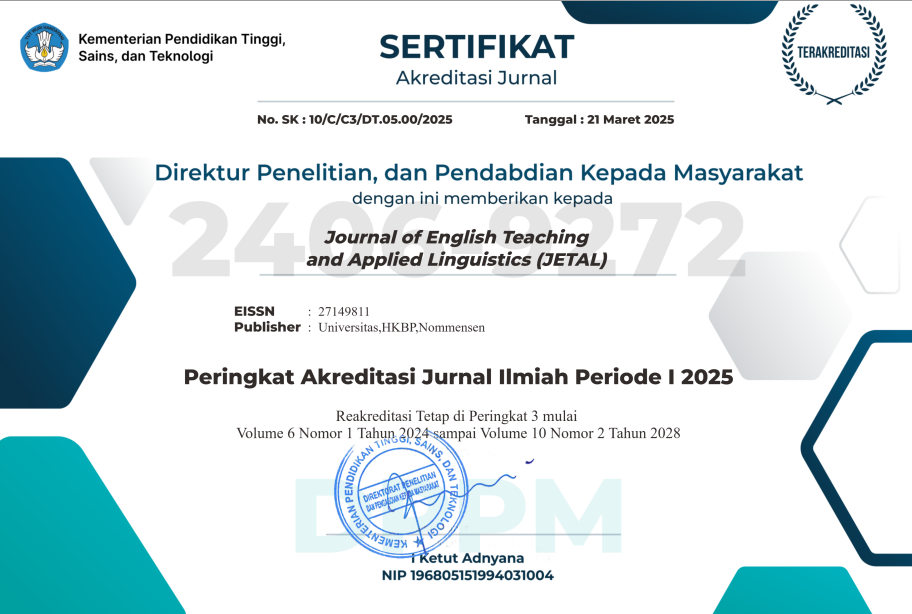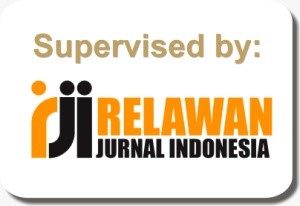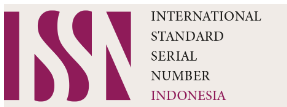Targeted Analysis of Common Spelling Errors among Grade Six Pupils
Abstract
Spelling errors are the most common inaccuracies in the writing of ESL learners. Despite the numerous studies on writing, teaching spelling as a research topic has often been overlooked. The primary objectives of this mixed method study are to describe the common spelling errors of grade 6 pupils of an all-girls school in Metro Manila post-pandemic, identify teaching strategies to minimize spelling errors and propose recommendations for teaching spelling. First, spelling tests and student handwritten essays were analyzed for spelling errors, which were later categorized using Cook’s classification. Second, interviews with Language teachers to identify teaching strategies were held, determining key themes and best practices in spelling instruction. The results indicated that students committed spelling errors mostly by omission, substitution, and insertion, and the strategies to enhance spelling skills include utilizing visuals, engaging students through interactive materials and collaborative activities, and using the words in context. Based on the findings, it is recommended to consider the following in crafting a spelling program: a fundamental list of commonly misspelled words following the rule-based system, a bank of effective strategies to expose students to words in context and engage them for active learning, a continuous assessment of spelling student abilities, and evaluation of the spelling program.
References
Al-Saudi, J. H. (2020). Errors Analysis of Spelling Among University Students of English in Jordan: An Analytical Study. Asian Social Science, 16(12), 19-29. https://dx.doi.org/10.5539/ass.v16n12p19
Ali, H & Nakshbandi, L & Ali, Fatimah & Barzani, Sami. (2022). The Effect of Spell-Checker Features on Spelling Competence among EFL Learners: An Empirical Study. International Journal of Social Sciences and Educational Studies. 9. 101-111. http://dx.doi.org/10.23918/ijsses.v9i3p101
Amiri, B., & Salehi, H. (2017). Effects of Using Crossword Puzzles on Improving Spelling Among Intermediate EFL Learners. Asian Journal of Education and E-Learning, 5(5). https://www.ajouronline.com/index.php/AJEEL/article/view/5040
Carvalhais, L., Limpo, T., and Pereira, L. (2021). The contribution of word-, sentence-, and discourse-level abilities on writing performance: A 3-year longitudinal study. Frontiers in Psychology,12. https://www.frontiersin.org/articles/10.3389/fpsyg.2021.668139
Chen, Y., Wang, X., & Li, J. (2022). Influence of Pronunciation, Learning Environment, and Student Attitudes on Spelling Proficiency Among Bilingual Students. International Journal of Bilingual Education and Bilingualism, 25(3), 450-467.
Chow, B. W. Y., & Ruan, Y. (2023). Examining the Nature of Spelling Errors in Elementary Students: A Study Using Cook's Classifications. Journal of Educational Psychology, 115(2), 367-386.
Cook, V. J. (1997). L2 users and English spelling. Journal of Multilingual and Multicultural Development, 18(6), 474-488.
Department of Education. (2024). MATATAG curriculum: English grades 4 & 7. https://www.deped.gov.ph/wp-content/uploads/MATATAG-ENGLISH-CG-G4-and-7.pdf[1]
Fitria, N. (2020). Spelling errors analysis in student’s writing English Composition. Getsempena English Education Journal, 7(2), 240-254. https://doi.org/10.46244/geej.v7i2.988
Gilbert, M., Kearns, D. M., & Palombo, K. (2021). The Relationship Between Spelling Proficiency and Writing Quality in Elementary Students. Journal of Literacy Research, 53(2), 234-256.
Imtiaz, M, Hassan, K, & Akmal. F. (2023). Analyzing Spelling Errors Committed by English as a Second Language (ESL) Learners at Secondary Level. Journal of Sciences Review, 3(2), 181-189. https://doi.org/10.54183/jssr.v3i2.246
Jones, M., & White, L. (2022). Morphological Knowledge and Spelling Proficiency in Elementary Students. Developmental Linguistics, 35(3), 202-214.
Lee, S., Martinez, P., & Williams, K. (2023). Orthographic Challenges in English Spelling: A Study of Common Errors and Instructional Strategies. Reading and Writing Quarterly, 39(1), 75-91.
Mahamuni, A. J., & Chakkalathy, J. R. (2022). Improving Students’ English Spelling Ability through Activity-Based Teaching-Learning for Standard VII: An Action Research. Spicer Adventist University Research Articles Journal.https://dx.doi.org/10.56934/sauraj.v1i2.125
Mensah, R., Ansah, R., and Agbaglo, E. (2022). Using language games to improve the spelling ability of primary four pupils of Kormantse Methodist Primary ‘A’. International Journal of Research Studies in Education. http://dx.doi.org/10.5861/ijrse.2022.336
Nahari, A. & Alfadda, H. (2016). From Memorising to Visualising: The Effect of Using Visualisation Strategies to Improve Students’ Spelling Skills. English Language Teaching. 9( 1),1-18.http://dx.doi.org/10.5539/elt.v9n6p1
Nejar, M. (2023). Pupils’ writing and spelling abilities through diary writing. International Research Journal of Modernization in Engineering Technology and Science, 5(10), 1092-1104.https://www.irjmets.com/uploadedfiles/paper//issue_10_october_2023/45267/final/fin_irjmets1697293656.pdf
Putman, R. (2017). Using research to make informed decisions about spelling curriculum. Texas Journal of Literacy Education, 5(1), 24-32. https://files.eric.ed.gov/fulltext/EJ1147675.pdf
Rzepka, N., Simbeck, K. & Müller, H. (2022). Impact of the Covid-19 pandemic on students’ spelling ability. Research on Education and Media,14(2) 57-63. https://doi.org/10.2478/rem-2022-0022
Saavedra, A & Barredo, C. (2020). Factors that Contribute to the Poor Writing Skills in Filipino and English of the Elementary Pupils. International Journal of Innovation, Creativity, and Change, 14(5), 1090-1106, https://www.researchgate.net/publication/364921581_Factors_that_Contribute_to_the_Poor_Writing_Skills_in_Filipino_and_English_of_the_Elementary_Pupils
Santos, M., & Reyes, A. (2021). Spelling Preferences in Philippine English: A Comparative Analysis of American and British Influences. Journal of English Linguistics, 49(4), 365-382.
Sarwat Un NIsa, Alhaider, S. M., Usmani, S., Wani, N. H., & Asiri, S. (2023). Errors in Writing Among Female Students at the Tertiary Level in Saudi Arabia. International Journal of Linguistics, Literature and Translation, 6(3), 150–166. https://doi.org/10.32996/ijllt.2023.6.3.17
Smith, J., Brown, A., & Lee, C. (2021). Phonological Errors in Spelling: Causes and Interventions. Educational Psychology Review, 33(1), 66-79.
Sultani, A. & Himat, A. (2021). Impacts of spelling problems on EFL students’ writing skills at Kandahar University, Kandahar, Afghanistan. European Journal of Education Studies. 8(4), 22-39.www.researchgate.net/publication/352821042_IMPACTS_OF_SPELLING_PROBLEMS_ON_EFL_STUDENTS'_WRITING_SKILL_AT_KANDAHAR_UNIVERSITY_KANDAHAR_AFGHANISTAN
Soquita,I. (2021). Spelling Worktext and Performance of Grade 11 Students of Esperanza National High School. Randwick International of Education and Linguistics Science Journal, 2(3), 284-295. https://doi.org/10.47175/rielsj.v2i3.296
Yen Yen, E. L., & Mohamad, M. (2021). Spelling Mastery via Google Classroom among Year 4 Elementary School ESL Students during the COVID-19 Pandemic. Journal of Education and E-Learning Research, 8(2), 206–215. https://doi.org/10.20448/journal.509.2021.82.206.215

This work is licensed under a Creative Commons Attribution-ShareAlike 4.0 International License.
Authors retain copyright and grant the journal right of first publication with the work simultaneously licensed under a Creative Commons Attribution-ShareAlike 4.0 International License (CC BY-SA 4.0) that allows others to share the work with an acknowledgment of the work's authorship and initial publication in this journal.
Authors are able to enter into separate, additional contractual arrangements for the non-exclusive distribution of the journal's published version of the work (e.g., post it to an institutional repository or publish it in a book), with an acknowledgment of its initial publication in this journal.
Authors are permitted and encouraged to post their work online (e.g., in institutional repositories or on their website) prior to and during the submission process, as it can lead to productive exchanges, as well as earlier and greater citation of published work (See The Effect of Open Access).






